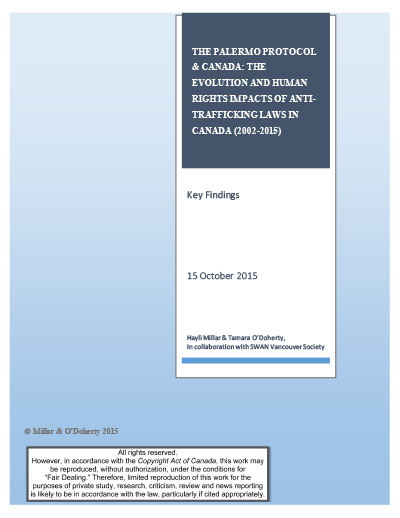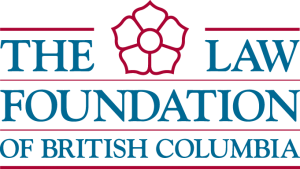The Evolution and Human Rights Impacts of Anti-Trafficking Laws in Canada (2002-2015)
SWAN participated in a collaborative research project that critically evaluated the stated intentions and actual effects of national anti-human trafficking laws, in hopes of advancing migrant workers’ access to justice.
As part of this project, primary investigators Drs. Tamara O’Doherty and Hayli Millar undertook a legal analysis of the evolution and enforcement of anti-trafficking legislation, conducted interviews with criminal justice practitioners with direct experience related to anti-trafficking efforts in Canada, and convened three focus groups with SWAN staff, board members and volunteers.
“The Palermo Protocol & Canada Ten Years On: The Evolution and Human Rights Impacts of Anti-Trafficking Laws in Canada [hereinafter the Palermo Project] is an academic and community partnership critically evaluating the stated intentions and actual effects of national anti-human trafficking laws, in the more than ten years since Canada ratified the international treaty.
With the generous support of the Law Foundation of British Columbia, two socio-legal researchers (Millar and O’Doherty) and several student research assistants at the University of the Fraser Valley (UFV) collaborated with SWAN Vancouver Society to undertake a comprehensive study of Canada’s use of anti-trafficking legislation.
Our primary goals were to assess the empirical evidence about human trafficking in Canada with a view to advancing migrant workers’ access to justice.”
Read the full Palermo Protocol & Canada PDF report here.
Funded by the Law Foundation of British Columbia.


